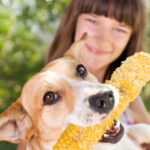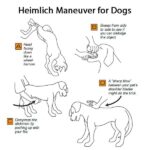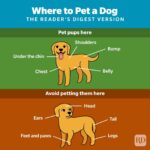Is Cornbread Bad For Dogs
The Truth About Cornbread and Dogs: Separating Fact from Fiction
When it comes to feeding dogs, there are many myths and misconceptions about what is safe and healthy. One popular question that dog owners often ask is whether cornbread is bad for dogs. Some people claim that cornbread can cause digestive problems, allergies, or even poisoning in dogs, while others argue that cornbread can be a nutritious and tasty treat for dogs. So, what is the truth? In this article, we will explore the pros and cons of feeding cornbread to dogs and provide some tips on how to do it safely and wisely.
What is Cornbread?
Cornbread is a type of bread made from cornmeal, which is a finely ground flour made from dried corn kernels. Cornmeal can be yellow or white, depending on the variety of corn used. Cornbread recipes can vary widely depending on the region, culture, and personal preference, but most cornbreads share some common ingredients such as flour, eggs, milk or buttermilk, salt, sugar or honey, baking powder or soda, and fat (such as butter or oil). Some cornbreads may also contain additional ingredients like cheese, jalapenos, herbs, or fruits.
Is Cornbread Safe for Dogs?
The answer to this question depends on several factors such as the quality of the ingredients used in the cornbread recipe, the portion size given to the dog, and the individual health status of the dog. Generally speaking, plain unsweetened cornbread made with whole grain cornmeal and no added salt or fat can be a safe and healthy option for dogs in moderation. However, if you give your dog too much cornbread or use low-quality ingredients that may contain additives or preservatives that are harmful to dogs (such as xylitol or garlic), you may put your dog at risk of obesity, gastrointestinal upset, pancreatitis, or other health issues.
Benefits of Cornbread for Dogs
Cornbread can provide some nutritional benefits for dogs when given in the right amount and form. For example:
– Cornmeal is a good source of carbohydrates, which can provide energy and fiber for dogs. However, dogs do not need as much carbohydrates as humans do, so cornbread should not be the main source of their diet.
– Cornmeal contains some vitamins and minerals such as vitamin B6, thiamine, niacin, iron, and magnesium that can support the immune system, nervous system, and muscle function of dogs. However, these nutrients are not abundant in cornmeal and may be better obtained from other sources like meat or vegetables.
– Cornbread can be a tasty and convenient way to give your dog treats or rewards during training or bonding sessions. However, you should avoid using cornbread as a substitute for real food or overfeeding your dog with too many treats.
Risks of Cornbread for Dogs
Cornbread can also pose some risks to dogs if not given properly or if consumed in excess. Some potential risks include:
– Cornbread may contain high amounts of salt or fat that can be harmful to dogs with existing health conditions like kidney disease or obesity. Therefore, you should choose low-sodium and low-fat options if possible.
– Cornbread may contain wheat flour or other grains that some dogs are allergic to. Therefore, you should monitor your dog’s reaction to cornbread and stop giving it if you notice any signs of allergy such as itching, vomiting, diarrhea, or breathing difficulties.
– Cornbread may contain ingredients like raisins or chocolate chips that are toxic to dogs and can cause serious health problems like kidney failure or seizures. Therefore, you should always check the ingredient list before giving your dog any human food.
How to Give Cornbread to Dogs
If you decide to give your dog cornbread as a treat or supplement, here are some tips to follow:
– Choose a high-quality cornmeal that is free of additives or preservatives. You can also make your own cornbread from scratch using simple and healthy ingredients.
– Bake the cornbread in small portions or muffin cups to control the portion size and minimize waste. You can also freeze the leftovers for later use.
– Cut the cornbread into small pieces or crumble it into bits to make it easier for your dog to chew and digest. Avoid giving whole slices or chunks that may cause choking or blockage.
– Introduce cornbread gradually and in small amounts to your dog’s diet, especially if he has never had it before or has a sensitive stomach. Watch for any signs of digestive upset or allergic reaction and adjust accordingly.
– Use cornbread as a supplement rather than a substitute for your dog’s main meals. Cornbread should not exceed 10% of your dog’s daily calorie intake.
– Consider adding some healthy toppings or mix-ins to enhance the flavor and nutrition of the cornbread, such as cooked chicken, carrots, green beans, or plain yogurt.
Conclusion
In conclusion, cornbread can be both good and bad for dogs depending on how it is made and given. Cornbread made with wholesome ingredients like whole grain cornmeal, eggs, and milk can provide some nutritional benefits for dogs when given in moderation and under supervision. However, cornbread made with low-quality ingredients or given in excess can pose some risks to dogs’ health and well-being. Therefore, it is important to choose wisely and follow some basic guidelines when feeding cornbread to dogs. With proper care and attention, you can enjoy sharing this tasty treat with your furry friend without any guilt or worry. Happy baking!



